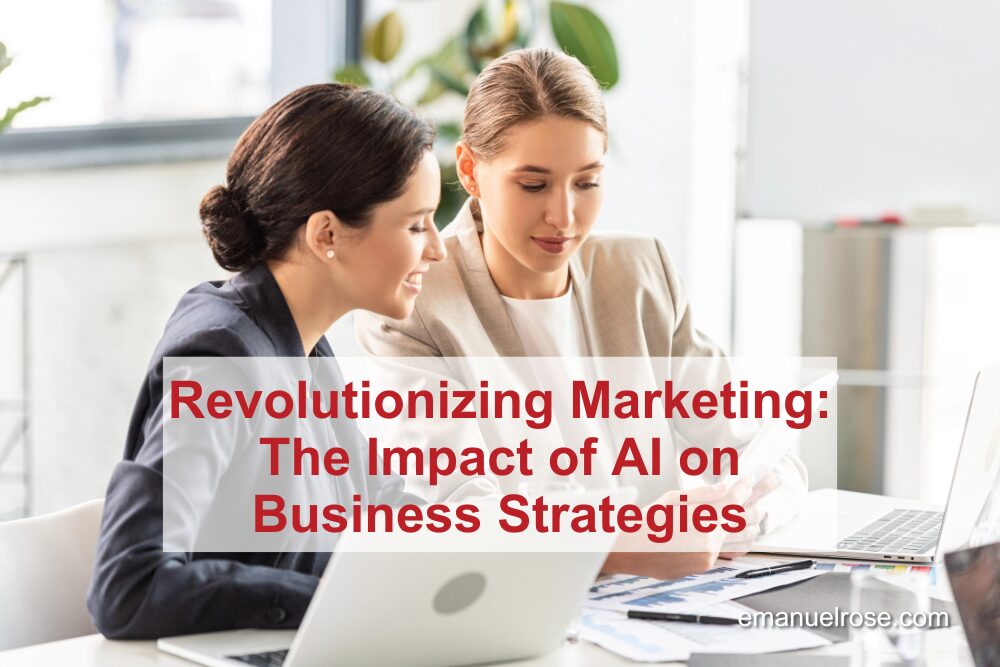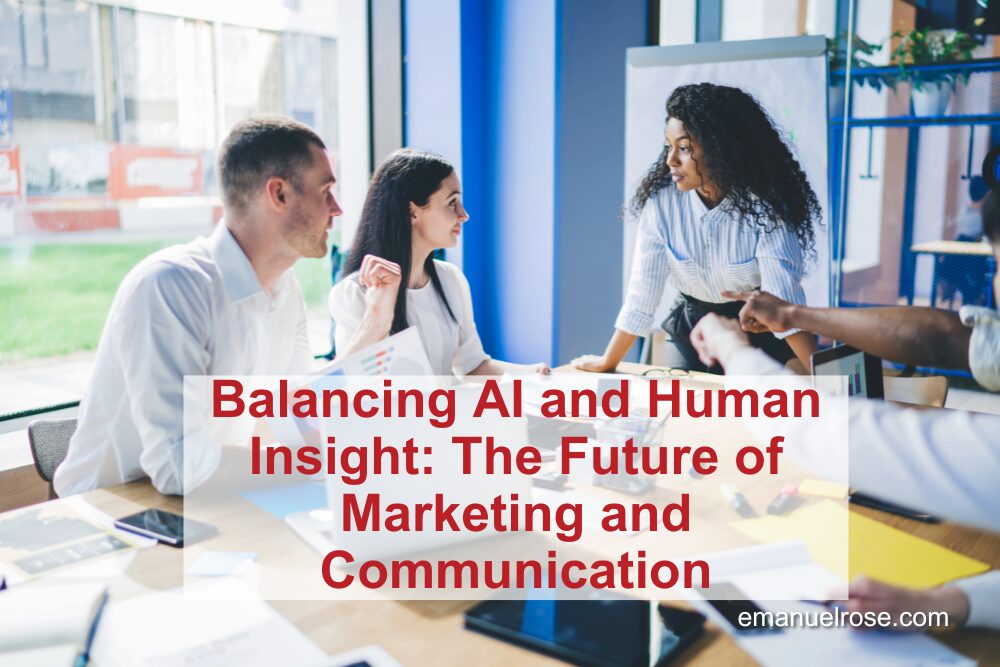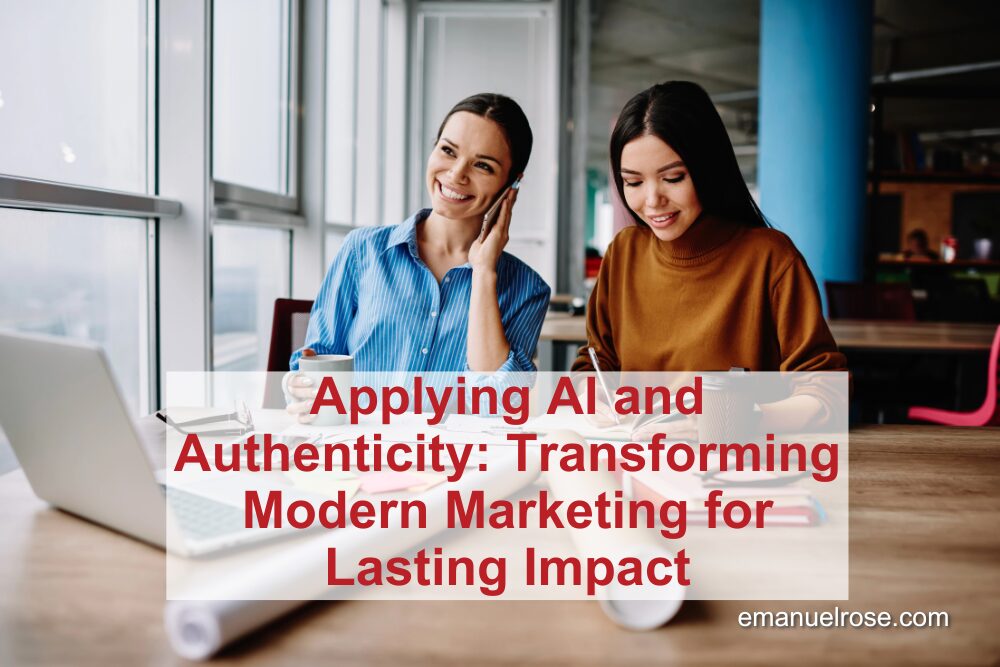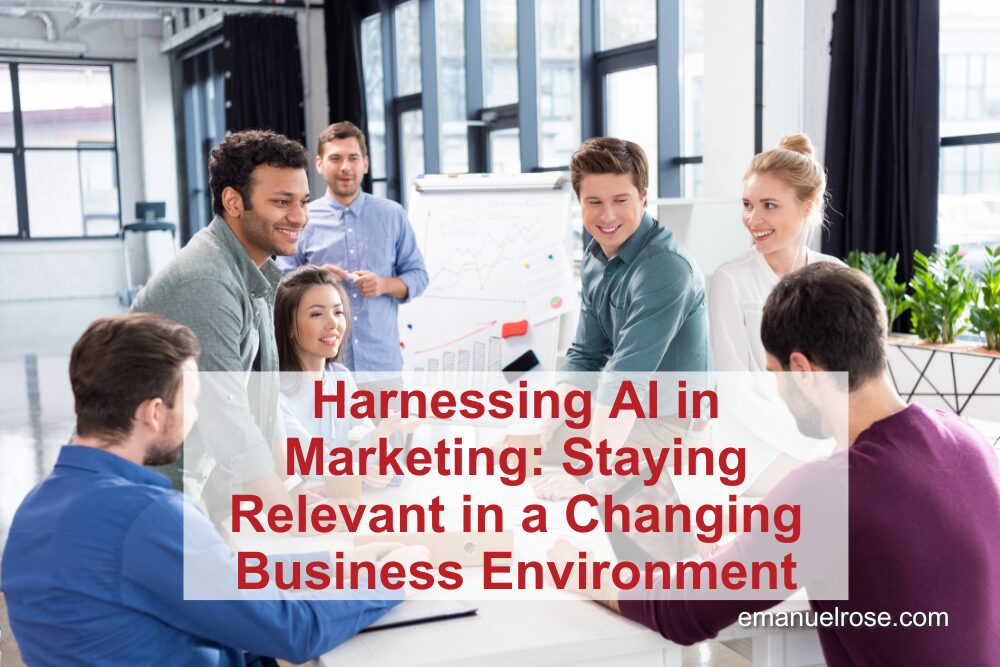Leveraging AI in Marketing: Strategies for Growth and Ethical Integration
Businesses face a pivotal choice: adapt to technological advancements or risk becoming obsolete. As artificial intelligence (AI) continues to permeate various industries, companies must seize the opportunities to amplify their marketing strategies and invigorate business growth. The convergence of AI and marketing has ushered in a transformative era that demands vigilance and adaptability. An AI-Driven Transformation Across Industries AI’s influence extends beyond marketing, infiltrating diverse sectors, including healthcare, pharmaceuticals, and beyond. The advent of AI tools and platforms has prompted organizations to rethink their operational frameworks and tap into unprecedented efficiency gains. For example, AI is revolutionizing the healthcare industry’s diagnostics, disease detection, personalized medicine, and administrative processes. The introduction of AI chatbots capable of conducting medical diagnoses epitomizes the transformative potential of AI in creating more streamlined healthcare experiences. This rapid acceleration of AI integration is reflected in myriad applications, from content strategy development, data analytics, and creative pre-production in marketing agencies to process automation and algorithmic refinement across various sectors. The ability to harness AI for intelligent decision-making underscores its capacity to decode complex qualitative data, speeding up processes that once demanded significant human intervention. The Challenges and Considerations in AI Integration However, integrating AI technologies is not without its challenges. Ethical considerations loom as companies navigate the delicate balance between leveraging AI for competitive advantage and ensuring human oversight to avert unintended consequences. The philosophical debate about whether AI will eventually surpass human control presents a provocative question: Are we on the cusp of a future where technology dictates our existence, or will humanity continue to wield the reins? Government regulations often lag behind technological innovation, raising concerns about the adequacy of existing frameworks to address emerging AI capabilities. Organizations must proactively engage in discussions to formulate guidelines and best practices that ensure AI is used responsibly and aligned with societal values. The ever-present specter of malfunction or misuse—exemplified by scenarios of autonomous robots performing surgeries—underscores the need for vigilant safety protocols. Towards a New Era of Human-Technology Collaboration Companies must deliberate on integrating these powerful tools into their strategies as AI evolves while preserving the human touch. The ongoing discussion about ‘humans in the loop’ highlights the critical role of human oversight in AI-driven processes, emphasizing the importance of context, nuance, and ethical considerations in decision-making. Despite strides in AI technology, concerns about the potential loss of human agency and control persist. As humans strive to conserve energy and remain efficient, the tools must be wielded judiciously. It is essential to recognize that AI’s burgeoning capabilities require a principled approach that weighs the pros and cons of its application on an individual, ethical, and soietal level. Understanding the nuances of AI and its ramifications becomes vital as businesses navigate this new frontier. The socioeconomic landscape faces potential shifts as the world moves towards increased automation and digitization. This transition could lead to distinct societal divisions based on technological adoption, underscoring the need for inclusive conversations about the role of AI in shaping our future. Embracing AI as a Catalyst for Growth Although the AI phenomenon may evoke apprehensions about its implications, it also offers a unique chance to redefine business practices and societal norms. Guided by a philosophy of care and responsibility, AI can catalyze innovation and sustainable growth. Individuals and organizations must remain cognizant of the broader implications of AI adoption and take active roles in shaping policies that dictate its scope and influence. Ultimately, businesses that actively participate in AI’s evolution—leveraging its capabilities, addressing its challenges, and embracing its potential—are poised to thrive in an increasingly intricate marketplace. By maintaining a balance between technological innovation and ethical responsibility, enterprises can navigate the complexities of the modern era, ensuring they remain competitive while fostering enduring success. Charting a Path Forward Navigating the multifaceted landscape of AI-driven marketing requires a mindset that embraces the unknown while remaining anchored in human values. Forward-thinking organizations, particularly those with visionary leaders, can pave a brighter future by integrating AI in ways that honor both innovation and ethical considerations. As the next generation grapples with these advancements, the goal must be to create a society where technology serves humanity, fostering a future imbued with possibility and hope. By articulating clear outcomes, engaging in proactive conversations, and fostering collaboration between technological innovators and policymakers, businesses can ensure that AI becomes a tool for empowerment rather than a source of division. As we usher in this new age, embracing AI’s potential while safeguarding human integrity will be paramount in shaping a prosperous and inclusive future. We sincerely appreciate the valuable insights shared by Nick Smith. As discussed today, embracing AI in marketing is essential for driving growth and staying competitive while ensuring ethical integration. Get to know Nick: linkedin.com/in/therealnicksmith Watch the Marketing in the Age of AI Podcast Featuring Nick Smith: youtu.be/ZPE81DPUYoY
Leveraging AI in Marketing: Strategies for Growth and Ethical Integration Read More »










